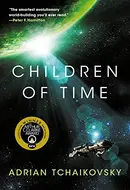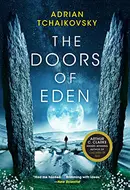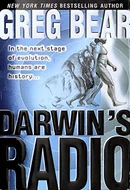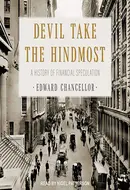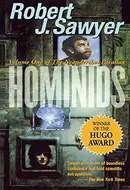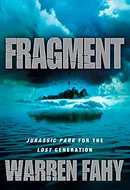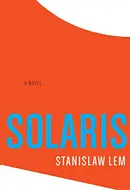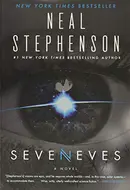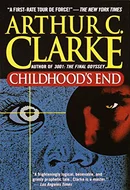Books matching: speculative evolution
25 result(s)
Readers also searched for:
- #1
'Last and First Men' by Olaf Stapledon is a speculative science fiction novel that spans over two billion years of human evolution and history. The book presents a series of future scenarios where different human species rise, evolve, and eventually face extinction due to various internal and external challenges. Stapledon's writing style is characterized by a lack of traditional plot and character development, focusing instead on providing a chronological overview of the future history of mankind and its descendants. The narrative is structured as a historical account, with a focus on exploring philosophical and existential themes through the lens of speculative evolution.
Long before the human spirit awoke to clear cognizance of the world and itself, it sometimes stirred in its sleep, opened bewildered eyes, and slept again. One of these moments of precocious experienc... - #2
'Children of Time' by Adrian Tchaikovsky is a captivating science fiction novel that delves into the concept of speculative evolution. The story follows two parallel plotlines - one focusing on the remnants of humanity aboard a generation ship facing conflicts and challenges, and the other highlighting the evolution of hyper-intelligent spiders on a terraformed planet. The intricate worldbuilding, complex societal structures, and unique biotechnologies showcased in the book offer a thought-provoking exploration of themes such as evolution, terraforming, and the consequences of human actions on distant planets. Tchaikovsky's writing style seamlessly weaves together these two narratives, creating a compelling and immersive reading experience that keeps readers engaged till the satisfying conclusion.
There were no windows in the Brin 2 facility—rotation meant that “outside” was always “down,” underfoot, out of mind. The wall screens told a pleasant fiction, a composite view of the world below that... - #3
THE DOORS OF EDEN by Adrian Tchaikovsky is a science fiction novel that explores the concept of parallel universes and multiple Earths on alternative timelines. The story follows two friends, Lee and Mal, who investigate supernatural occurrences and get caught up in a mysterious adventure involving interdimensional aliens, portals, and the collapse of the multiverse. The narrative weaves together themes of speculative biology, paleobiology, and deep time, creating a complex and intricate world filled with diverse characters and thought-provoking ideas. The book is structured around allusions to Lewis Carroll's Alice books, with chapters interspersed with excerpts from a fictional book on speculative evolution.
For three billion years the only life here has been microscopic. Bacteria have been leaching sustenance from strange chemicals in the bowels of the Earth or the depths of the sea. Ice comes, ice goes;... - #4
'Darwin's Radio' by Greg Bear is a speculative fiction novel that explores the emergence of a new plague caused by active retroviral genes in the human genome. The story follows the discovery of a mummified Neanderthal family by a Nobel Prize-winning biologist and an archaeologist, which coincides with the sudden activation of a part of the human genetic code leading to complications in women's pregnancies. As Homo sapiens face the threat of extinction, the characters race to uncover the cause of the genetic activation and its implications, delving into a world of hard-core genetics and societal implications.
The book delves into themes of evolution, societal reaction to change, the clash between science and politics, and the implications of a biological crisis on the future of humanity. The narrative weaves together engaging characters, speculative science, and a fast-paced plot that keeps readers hooked as they contemplate the possibilities of the next step in human evolution and the ethical dilemmas it presents.
His ankles aching and back burning from a misplaced loop of nylon rope, Mitch Rafelson followed Tilde’s quick female form along the margin between the white firn and a dust of new snow on the field. M... Edward Chancellor's book, 'Devil Take the Hindmost: A History of Financial Speculation', delves into the history of financial markets, exploring speculative bubbles, market crashes, and the impact of human greed and irrationality on financial systems. Chancellor provides a thorough examination of various speculative manias throughout history, from the Tulipomania of 1630 to the Japanese crisis of the 1980s, shedding light on the recurring patterns of financial excess and collapse. The book offers insights into the dangers of leveraging and the ethical implications of speculation, highlighting the volatile nature of financial markets and the risks associated with unchecked speculation.
Chancellor's writing style is described as dense but engaging, offering a comprehensive overview of financial speculation that is both informative and thought-provoking. Through a historical lens, the author navigates the complexities of speculative markets, drawing parallels between past and present financial crises to underscore the cyclical nature of market booms and busts. Readers are taken on a journey through the evolution of financial systems, from early examples of speculative behavior to modern-day derivatives and hedge funds, providing a cautionary tale about the perils of unchecked speculation and the importance of regulatory safeguards in maintaining market stability.
When I was young, people called me a gambler. As the scale of my operations increased I became known as a speculator. Now I am called a banker. But I have been doing the same thing all the time. Sir E...- #6
'Hominids' by Robert J. Sawyer is a thought-provoking science fiction novel that explores a parallel universe where Neanderthals survived and flourished instead of Homo Sapiens. The story follows the opening of communication between the Neanderthal world and present-day Canada, delving into themes of quantum physics, anthropology, and societal differences. The plot alternates between the two worlds, showcasing the challenges and discoveries faced by the characters as they navigate through this intriguing premise.
With a mix of social commentary, scientific exploration, and engaging storytelling, 'Hominids' presents a unique blend of themes ranging from alternate earths and paleoanthropology to ethical discussions and cultural clashes. The narrative not only delves into the differences between the Neanderthal and human societies but also raises questions about technology, ethics, and the impact of societal norms on individual characters. Despite some flaws in character development and pacing, the book captivates readers with its imaginative premise and the exploration of complex ideas within a gripping plot.
Watching over it was Louise Benoit, twenty-eight, a statuesque postdoc from Montreal with a mane of thick brown hair stuffed, as required here, into a hair net. She kept her vigil in a cramped control... - #7
'Fragment' by Warren Fahy is a fast-paced science fiction thriller that takes readers to Henders Island, a remote and isolated land teeming with bizarre and deadly creatures. The story follows a group of scientists and a reality TV crew who stumble upon the island and find themselves facing a fight for survival against the savage inhabitants. The book combines elements of adventure, science, and suspense, drawing comparisons to popular works like Jurassic Park and The Ruins. Despite some flaws in character development and dialogue, 'Fragment' offers an engaging exploration of a unique ecosystem and the dangers lurking within.
When the American Association for the Advancement of Science met in Anaheim, California, in 1999 to discuss an urgent report on the impact of alien species, the scientists gathered weren’t discussing ... - #8
"Solaris" by Stanisław Lem is a classic science fiction novel that explores the encounter between humans and a truly alien entity on the planet Solaris. The story follows a psychologist arriving at a space station orbiting Solaris, where attempts to communicate with the enigmatic ocean on the planet prove futile. The novel delves into themes of human limitations in understanding the alien, as well as the complexities of memory and communication. Through haunting encounters with embodiments of repressed memories, the characters grapple with the mysteries of Solaris and the implications of their own minds in the face of the incomprehensible.
The narrative of "Solaris" weaves together elements of horror, psychological thriller, and philosophical introspection as the characters navigate the enigma of the planet and its manifestations. The writing style of Lem is described as thought-provoking, intellectual, and ambiguous, challenging readers with a dry yet engaging exploration of the limits of human knowledge when faced with the truly alien. The book presents a riveting mystery that captivates readers with its atmospheric tension and its profound examination of humanity's attempts to comprehend the unknown.
Inside the narrow cockpit, there was scarcely room to move. I attached the hose to the valve on my space suit and it inflated rapidly. From then on, I was incapable of making the smallest movement. Th... - #9
"Seveneves" by Neal Stephenson is a science fiction novel that starts with the sudden destruction of the moon, leading to catastrophic events on Earth. The book follows humanity's struggle for survival as they plan to escape to space by building a Cloud Ark centered around the ISS. The story delves into intricate technical details, orbital mechanics, and the challenges faced in preserving a sliver of humanity. The narrative is divided into two parts, with the first focusing on the immediate aftermath of the disaster and the second part jumping 5000 years into the future, exploring new characters and genetic determinism.
An amateur astronomer in Utah was the first person on Earth to realize that something unusual was happening. Moments earlier, he had noticed a blur flourishing in the vicinity of the Reiner Gamma form... - #10
'Childhood's End' by Arthur C. Clarke is a science fiction novel that explores the end of humanity through its transformation into something greater. The story follows humanity from its first contact with aliens, who demand an end to violence among humans, to a transformation led by alien overlords. The book delves into themes of psychology, sociology, and paranormal activities, all while contemplating the nature of humanity and its evolution. Clarke's writing style is described as captivating, with a dry and thought-provoking approach that leaves readers contemplating deep existential questions.
The volcano that had reared Tratua up from the Pacific depths had been sleeping now for half a million years. Yet in a little while, thought Reinhold, the island would be bathed with fires fiercer tha...

